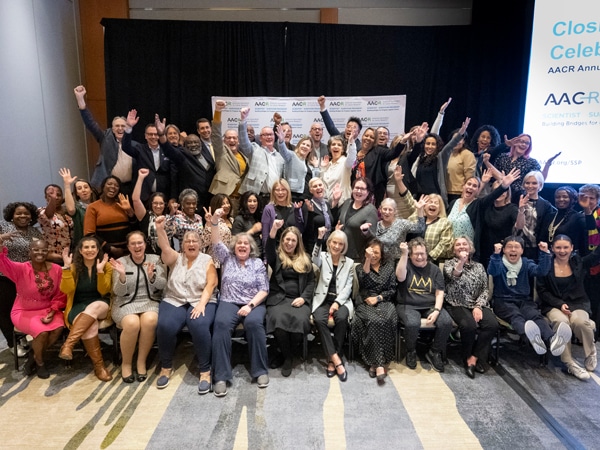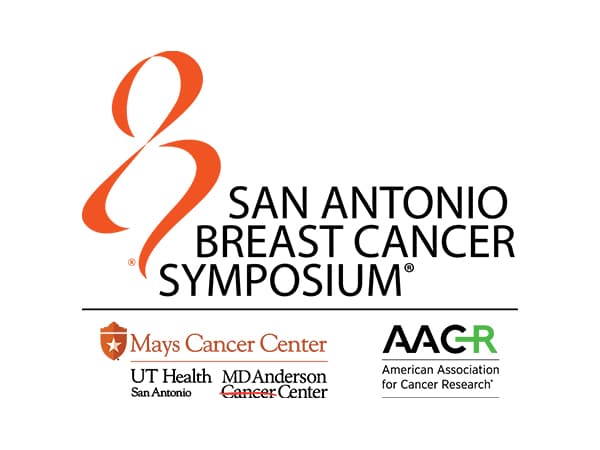AACR Annual Meeting 2017: Immunotherapy Provides Long-lasting Responses to Certain Cancer Types
Like last year, immunotherapy continues to be a hot topic at the AACR Annual Meeting 2017. Now that a plethora of clinical trials have established positive responses from immunotherapies—immune checkpoint inhibitors, in particular—in patients with a variety of cancer types, one of the logical next questions is, are the responses durable?
According to data presented on Monday, April 3, from a number of clinical trials across an array of cancer types, the answer appears to be “Yes.” For many patients whose cancers responded to treatment with an immune checkpoint inhibitor, particularly those that target the immune checkpoint proteins PD1 and PDL1, the responses appeared to have lasted for several years.
Five-year survival in patients with advanced lung cancer treated with nivolumab higher than historical rates
In a phase I clinical trial, CA209-003, patients with heavily pretreated, advanced non-small cell lung cancer (NSCLC) were randomly assigned to three different dose levels of the anti-PD1 immunotherapeutic nivolumab (Opdivo). Prior analysis of data from this trial showed that nivolumab had promising clinical activity in this patient population.
Data presented on Monday showed that after following 129 patients in this phase I trial for a minimum of about 58 months, overall survival rates in patients with squamous and non-squamous NSCLC were 16 percent and 15 percent, respectively. According to the National Cancer Institute’s SEER data, the five-year survival rate for patients with advanced lung and bronchus cancer is 4.3 percent, and for those with advanced NSCLC, it is 4.9 percent.
“This is the first report of the long-term survival rate in patients with metastatic NSCLC treated with an immune checkpoint inhibitor. Our study results show that for a small subset of patients, immunotherapy can work for a very long time,” said the study’s lead author Julie Brahmer, MD, associate professor of oncology at the Bloomberg~Kimmel Institute for Cancer Immunotherapy at Johns Hopkins.
David Gobin, a retired police officer who entered this clinical trial in late 2010 after multiple rounds of prior treatment of his advanced lung cancer, including two surgeries, radiation, and chemotherapies, continues to benefit from nivolumab.
“Every day I have my feet on the grass is a good day,” Gobin said in an interview. “I was in the right place at the right time. I will always have cancer, but you know what, I can live with it.”
Long-term benefit for patients with metastatic triple-negative breast cancer who responded to atezolizumab
Data from a phase I clinical trial showed that metastatic triple-negative breast cancer (TNBC) patients who experienced positive responses to the anti-PDL1 immune checkpoint inhibitor atezolizumab (Tecentriq) had a significantly longer overall survival compared with those who did not respond.
This study involves the largest cohort of patients with metastatic breast cancer treated with immunotherapy to be presented to date, and it is the first study to report data on survival for this subgroup, according to the study’s lead author Peter Schmid, MD, PhD, director of the St. Bartholomew’s Breast Centre at St. Bartholomew’s Hospital and Barts Cancer Institute in London.
While both one- and two-year overall survival rates for responders were 100 percent, for nonresponders, the rates were 33 percent and 11 percent, respectively. “Another noteworthy finding is that metastatic TNBC patients treated with atezolizumab had a prolonged median duration of response of 21 months, which is substantially longer than what has been seen with any other treatment to date for this patient population,” Schmid said.
Immunotherapy combination improved overall survival for patients with advanced melanoma
Results from the phase III clinical trial CheckMate 067 showed that patients with advanced melanoma who received a combination of nivolumab and the anti-CTLA4 immune checkpoint inhibitor ipilimumab (Yervoy) had improved overall survival compared with those who received ipilimumab alone.
 After a minimum follow-up of 28 months, median overall survival had not been reached for patients in the combination arm and those who received nivolumab only (because most of them were still alive at the time of data evaluation), but for those in the ipilimumab arm, the median overall survival was 20 months.
After a minimum follow-up of 28 months, median overall survival had not been reached for patients in the combination arm and those who received nivolumab only (because most of them were still alive at the time of data evaluation), but for those in the ipilimumab arm, the median overall survival was 20 months.
“It is exciting to see that initial results suggest that the nivolumab plus ipilimumab combination provides favorable survival outcomes compared with ipilimumab alone,” said James Larkin, PhD, a consultant medical oncologist at The Royal Marsden in London. “However, the combination also results in a higher rate of severe adverse events than nivolumab or ipilimumab alone, so it is important to consider this when making treatment decisions for patients.”
Responses in patients with advanced Merkel cell carcinoma treated with avelumab were durable
 Data from a phase II clinical trial, JAVELIN Merkel 200, presented by Howard L. Kaufman, MD, a surgical oncologist at Rutgers Cancer Institute of New Jersey in New Brunswick, New Jersey, showed that patients with advanced Merkel cell carcinoma, an aggressive type of skin cancer, who responded to the anti-PDL1 immunotherapeutic avelumab (Bavencio), had durable responses.
Data from a phase II clinical trial, JAVELIN Merkel 200, presented by Howard L. Kaufman, MD, a surgical oncologist at Rutgers Cancer Institute of New Jersey in New Brunswick, New Jersey, showed that patients with advanced Merkel cell carcinoma, an aggressive type of skin cancer, who responded to the anti-PDL1 immunotherapeutic avelumab (Bavencio), had durable responses.
After a median of 16.4 months of follow-up, 29 of the 88 enrolled patients had positive responses to avelumab, for an overall response rate of 33 percent. This included 10 patients with a complete response. The researchers estimate that 74 percent of patients will have a response that lasts one year or longer.
More work to do
While the latest data from these clinical trials attest to the durability of immune checkpoint inhibitor responses, it is important to note that only a fraction of patients in these clinical trials responded to these therapies: The objective response rate (patients who had complete responses plus those who had partial responses) in patients with advanced NSCLC who received 3mg/kg nivolumab was 32 percent, while it was 31.8 percent for patients with advanced Merkel cell carcinoma treated with avelumab, and 10 percent for patients with metastatic TNBC treated with atezolizumab.
Further, even though the objective response rate for patients with metastatic melanoma who received the ipilimumab-nivolumab combination was 61 percent, as Larkin noted, the combination resulted in increased rates of adverse events.
The challenge of immune checkpoint inhibitors working only for a fraction of patients is one of the areas highlighted as needing more research by AACR President-Elect Elizabeth Jaffee, MD, in a post to forecast immunotherapy advances in 2017. She also emphasized that we still need to address the fact that some patients experience serious side effects, and some develop resistance to treatment, but she predicts we will make progress in these areas this year, along with identifying mechanisms to deliver immune checkpoint inhibitors in a more targeted way to circumvent the toxic side effects.



